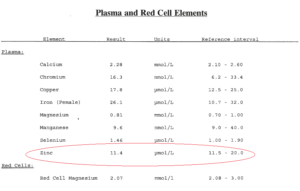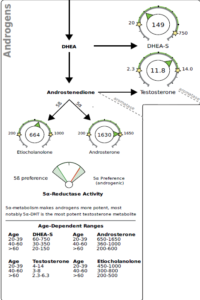 Hair loss can be very traumatic and worrying. There are many different causes and you should speak to your doctor first and foremost. There may be different avenues of investigation depending on the type and pattern, for example whether it is diffuse (all-over) or patches of baldness. Here we discuss some of the major causes of hair loss which are applicable to both men and women.
Hair loss can be very traumatic and worrying. There are many different causes and you should speak to your doctor first and foremost. There may be different avenues of investigation depending on the type and pattern, for example whether it is diffuse (all-over) or patches of baldness. Here we discuss some of the major causes of hair loss which are applicable to both men and women.
Thyroid condition
A major cause of diffuse hair loss is thyroid dysfunction. Other symptoms of hypothyroid may go along with this such as fatigue, low mood, or feeling cold. Your thyroid function tests may be one of the first tests your GP will carry out in relation to hair loss – to measure your TSH and your free T4 as a general and basic measurement of your thyroid. If you are diagnosed with a thyroid condition, nutritional support may be very beneficial. The approach differs depending on whether it is an autoimmune thyroid condition or whether a nutritional deficiency is the cause. It is important to find out the root cause, so that your thyroid, and thus your hair growth can be supported.
Iron deficiency
Hair loss is commonly associated with iron deficiency. This is most usually seen in women because menstruation means iron is lost each month. Some women take in low amounts of iron in their diet also. For some people, despite a good diet, digestive issues or difficulty absorbing iron is the issue. If you are diagnosed with an iron deficiency, you may be recommended iron supplements. Some of these are extremely difficult to take, causing upset stomach or constipation and black stools.
There are more gentle iron supplements but often they are lower in dose. If you are extremely low in iron, you may need to take higher dosage for a short period. You can then could switch to a more gentle approach. Your nutritionist will help you to rectify a deficiency using diet and safe supplementation. We can also investigate why you were deficient in the first instance.
Other deficiencies
Zinc deficiency is also a possible cause of hair loss. In our clinic, over half of our patients who measure their blood minerals are low in zinc. Zinc is in red meat, pulses like chickpeas and some nuts and seeds. It may be difficult to absorb so if you have digestive issues, zinc deficiency may be a problem for you. Low zinc is linked with vegan or vegetarian diets as phytates in plant-based foods makes it harder to absorb this mineral. It is also associated with some medications such as proton pump inhibitors (like Nexium) as reducing stomach acid reduces zinc absorption. Zinc also critical for thyroid function so it may have an indirect effect on hair growth also.
Stress
Stress can increase hair loss and trigger other conditions related to hair loss, even autoimmune issues like alopecia. While stress is not something we can wish away, nutrition and lifestyle supports can help to reduce the impact of stress on your body. A B complex and magnesium may be a useful place to start here along with a good balanced diet of course. Reducing sugar and stimulants such as caffeine are important in managing stress. We often use herbal supports to support cortisol balance and recovery from long term stressors. It is important to get advice on herbs, many have interactions with medications or other health conditions. This may include slowing down your thyroid which may make the hair loss worse.
Hormonal imbalance
Some hormonal imbalances are linked with hair loss, particularly excess testosterone. This is a major cause of hair loss in men, but also in women particularly in PCOS or women with fibroids. We test levels of testosterone and the active metabolites via urine test. Excess levels of testosterone may be reduced by including foods or supplements that inhibit the 5-alpha reductase enzyme. This is responsible for creating the more active and potent form of testosterone linked with hair loss and baldness in men. These are in foods such as brassica vegetables including broccoli, kale and cabbages. Certain medicinal mushrooms like reishi may be helpful along with other herbs, although it is important to test first before using any supplements.
Autoimmune conditions
Your doctor may refer you to a dermatologist for further investigation, particularly if you have a specific pattern of hair loss or bald patches. If you are diagnosed with alopecia, there is medication to control this. Nutrition may be able to support this in efforts to calm your immune system. Often the CD4+ T cells, an aggressive side of our immune system, is activated in alopecia along with other potential culprits. Dietary changes including adopting a more anti-inflammatory, high omega-3 fish, low red meat, plant-rich diet may help. In addition, we recommend specific supplements along with medicinal mushrooms to modulate the immune system.
If you would like to talk to us about testing, or how we can support your nutrition, call us on 01 2655977 or book online now.




